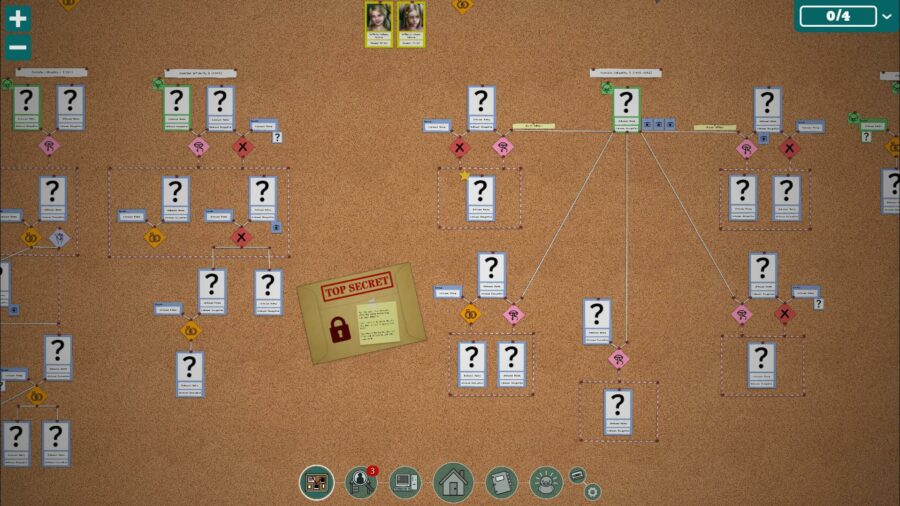The Roottrees Are Dead is a nostalgia project, but not in the way you’d think.
It’s an “armchair detective” game set in late 1998, which challenges you to piece together a big family’s dysfunctional history by digging through memoirs, magazines, library archives, and the early home Internet.
If it took place in 2012, you’d do 90% of the same work by creeping on millennials’ Facebook accounts; if it was set in 2025, half the libraries would be too underfunded to keep their archives online and all your Internet search results would inexplicably be ads for dick pills. I can’t accuse Roottrees of idealizing the past, but I have to envy its comparative lack of informational clutter.
You might’ve heard of Roottrees well before now. It was originally published as a browser game on Itch.io by Jeremy Johnston, who created it for a game jam in 2023. Johnston subsequently handed development on Roottrees over to Robin Ward, who rebuilt the game from the ground up in the Godot engine.
Ward’s version of Roottrees was released on Steam on Jan. 15. It features an improved UI, an expanded story, and a bonus scenario that follows up on the events of the original game, as well as replacing the original game’s Midjourney art with original paintings by Henning Ludvigsen.
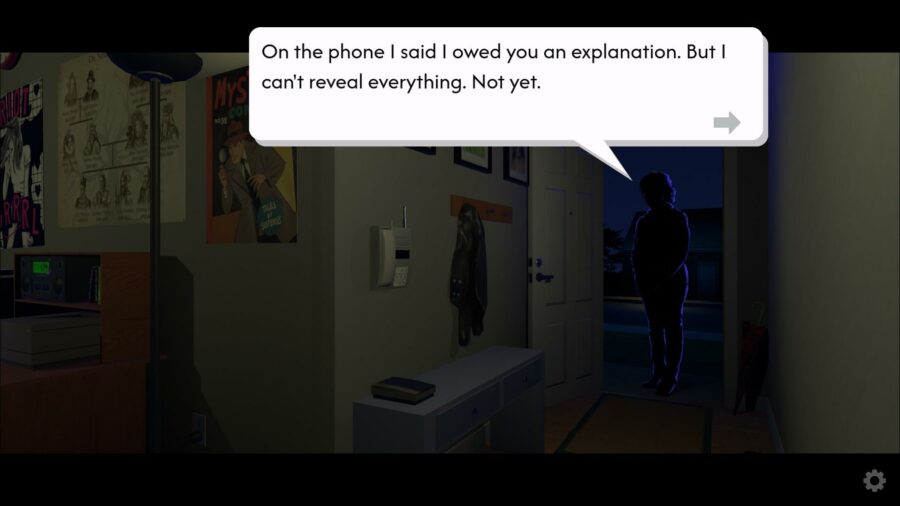
In December of 1998, Carl Roottree and his family are killed in a plane crash. Carl was the president of his family business, the Roottree Candy Company, while his 3 daughters Rhayna, Rhose, and Rhiley were famous fashion models for their mother Brenda’s clothing line. Between them, the 5 Roottrees were worth over a billion dollars.
Due to a provision in Carl’s great-grandfather Elias’ will, the Roottree fortune is shared among Elias’ direct descendants. With Carl and his daughters dead, a significant amount of that fortune is up for redistribution. However, it’s no longer clear just who is and isn’t a Roottree by blood.
That’s where you come in. You’re an unseen, faceless genealogist with no connection to the Roottrees. Two days after the crash, an anonymous client hires you to reconstruct the family tree, starting with Elias and his wife Gwyneth, to figure out who’s got a legal claim to the Roottrees’ money.
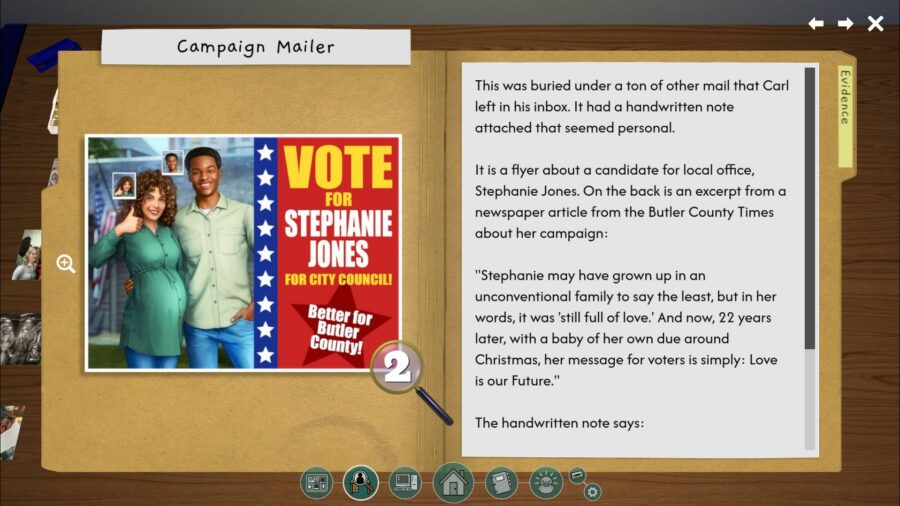
Roottrees is self-consciously inspired by Return of the Obra Dinn. Your goal is to map out 5 generations of the Roottrees as thoroughly as possible, using a handful of starting clues, a list of names, and your trusty 56K modem.
The family tree is initially empty, but you can complete each entry by correctly matching a person with a photo and their most recent occupation. Every time you get 3 family members right, the board locks and you move forward. As you fill in more of the family tree, however, evidence gets harder to find and it takes more correct guesses to lock entries in.
To figure out who’s who, you gather information through the search engine on your character’s desktop PC, as well as the local library and online periodical archives. Every successful search could give you a useful clue, or at least provide a hint as to your next steps.
Notably, Roottrees doesn’t hold your hand in any significant way. A number of the game’s UI elements are explained as being part of your character’s intuitive process, like being able to see how many vital clues are left in a given piece of evidence, but there’s no other indication (i.e. colored text) whether a given detail may or may not be important. You’re expected to chase down every lead, no matter how irrelevant. When I got stuck, it was usually because I was either reading too fast or I hadn’t been diligently doing a websearch for every new proper noun.
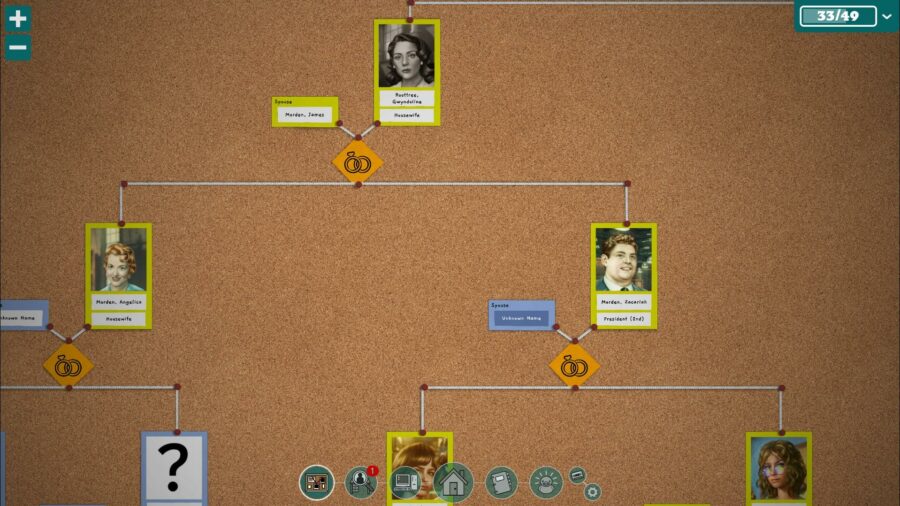
Last week, when I was playing Urban Myth Dissolution Center, I complained about how it forces you to operate at its own glacial pace. Roottrees, conversely, drops a massive stack of information on your head like a sack of gravel, then leaves you alone to sort through it.
It’s got the same addictive thrill as a complicated jigsaw puzzle. If one part of the family tree is slowing you down, there’s nothing to stop you from leaving it alone and going after an easier win. Many of the clues are initially hidden in irrelevant asides or as throwaway details in a photo, and it’s satisfying whenever you get two seemingly disparate facts to click together.
That being said, one thing that harms the experience for me is Roottrees’ occasional reliance on moon logic. A few crucial parts of the first case are only solved via requiring a big intuitive leap. One involves judging at a glance which of two nearly identical men is older; another character’s sole identifying detail is buried five links deep in a seemingly unrelated subject; and a few different characters simply have no Internet presence for no particular reason. There’s a whole branch of the Roottrees who work in show business, and the game makes it difficult to find reliable information about them despite the fact that IMDB existed in 1998.
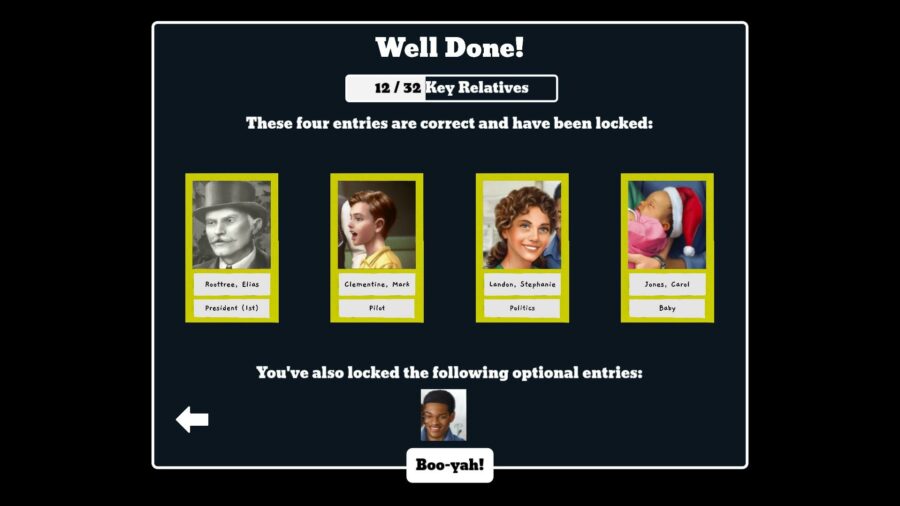
That quirk of puzzle design only qualifies as a minor speed bump in the base game, but as noted above, the Steam version includes a new scenario. In Roottreemania, you’re re-hired eight months later to determine which if any of several newly-discovered illegitimate children might be a direct descendant of Elias Roottree.
My primary issue with Roottreemania is that it’s treated like an add-on pack rather than a sequel. You’re opening another investigation on top of the old one, and many clues from the first scenario come into play from the second. However, many isn’t all, which means there’s no way to know what’s relevant from the base game unless you laboriously go through everything all over again.
It might be a semi-realistic portrayal of this kind of work, but it’s a slog, and it locks many of the puzzle solutions behind seemingly random deductive conclusions. There’s a deliberate artificiality to Roottreemania’s difficulty that brings down the entire experience, primarily by highlighting the base game’s worst tendencies.
(Also, I don’t know if it’s just me, but Roottreemania’s main plot hinges on a big twist that I figured out in the first 10 minutes, then had to sit on for about two hours. That was a little annoying.)
The first scenario, on the other hand, is an all-timer. The Roottrees Are Dead is a solid example of a woefully underpopulated subgenre. Not every facet of the game is created equal, and I’d just skip Roottreemania, but it’s a nice balance of mundane drama and deductive challenges. I’m already planning to put a couple of my mystery-obsessed relatives in front of it to keep them busy next Christmas.
[The Roottrees Are Dead, developed by Robin Ward from an original project by Jeremy Johnston and published by Evil Trout, is now available on Steam for $19.99. This column was written using a copy of the game purchased on Steam by Hard Drive.]


